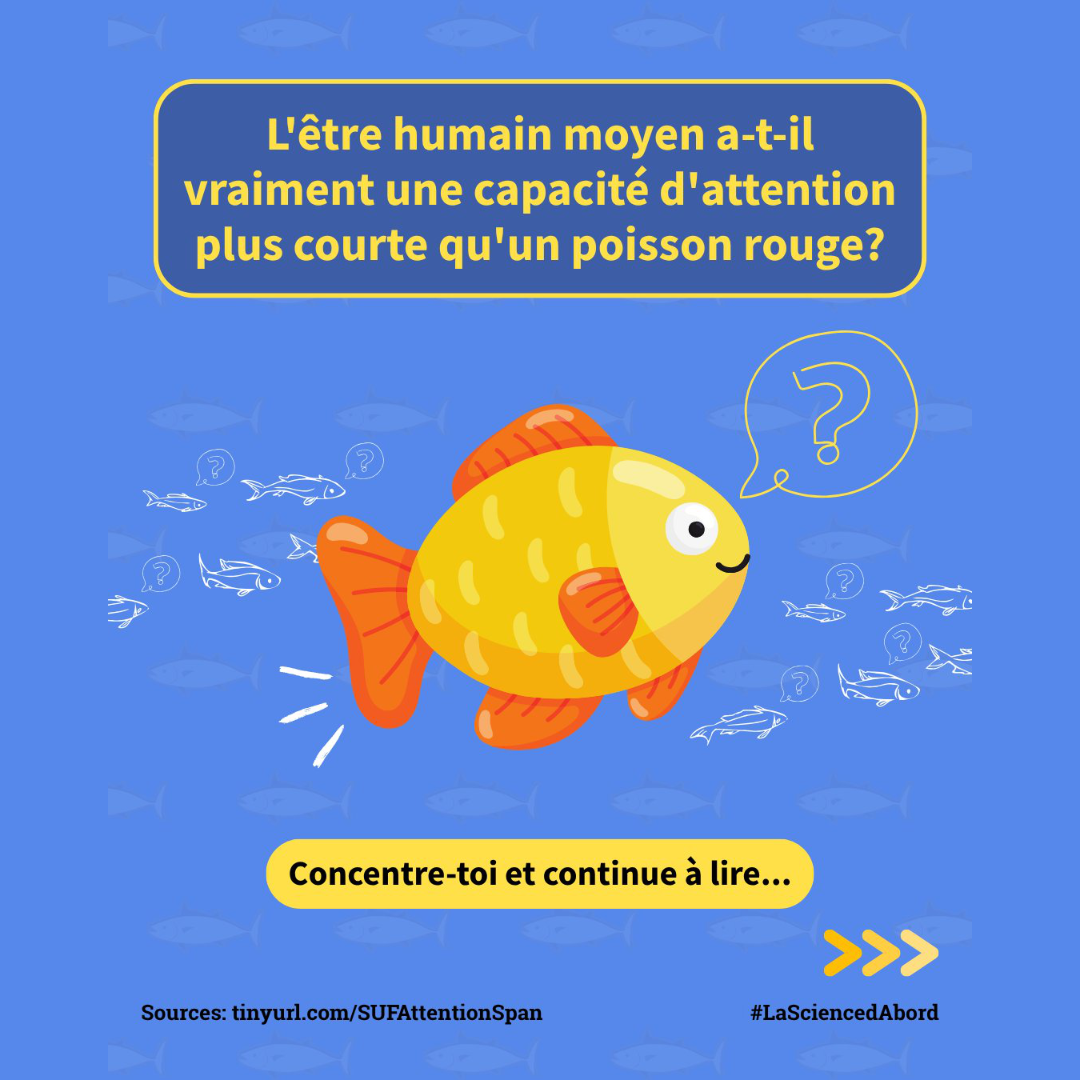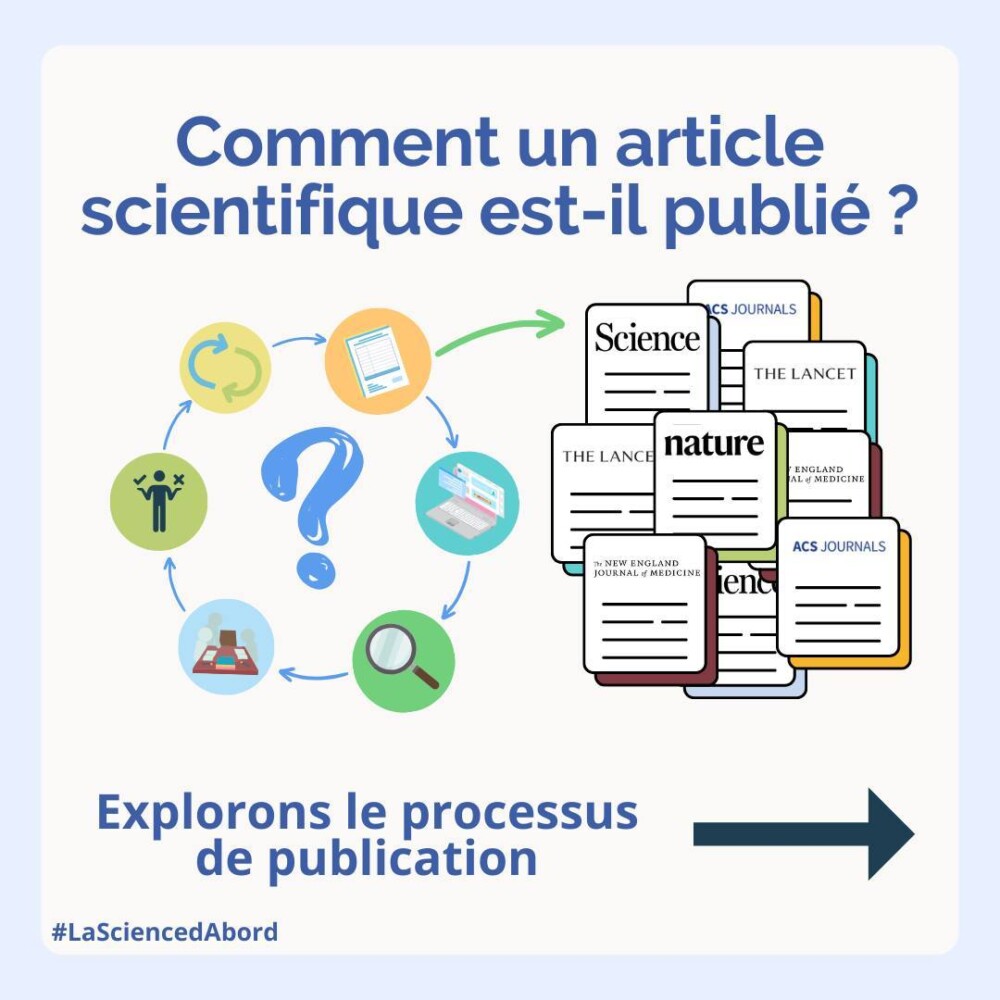

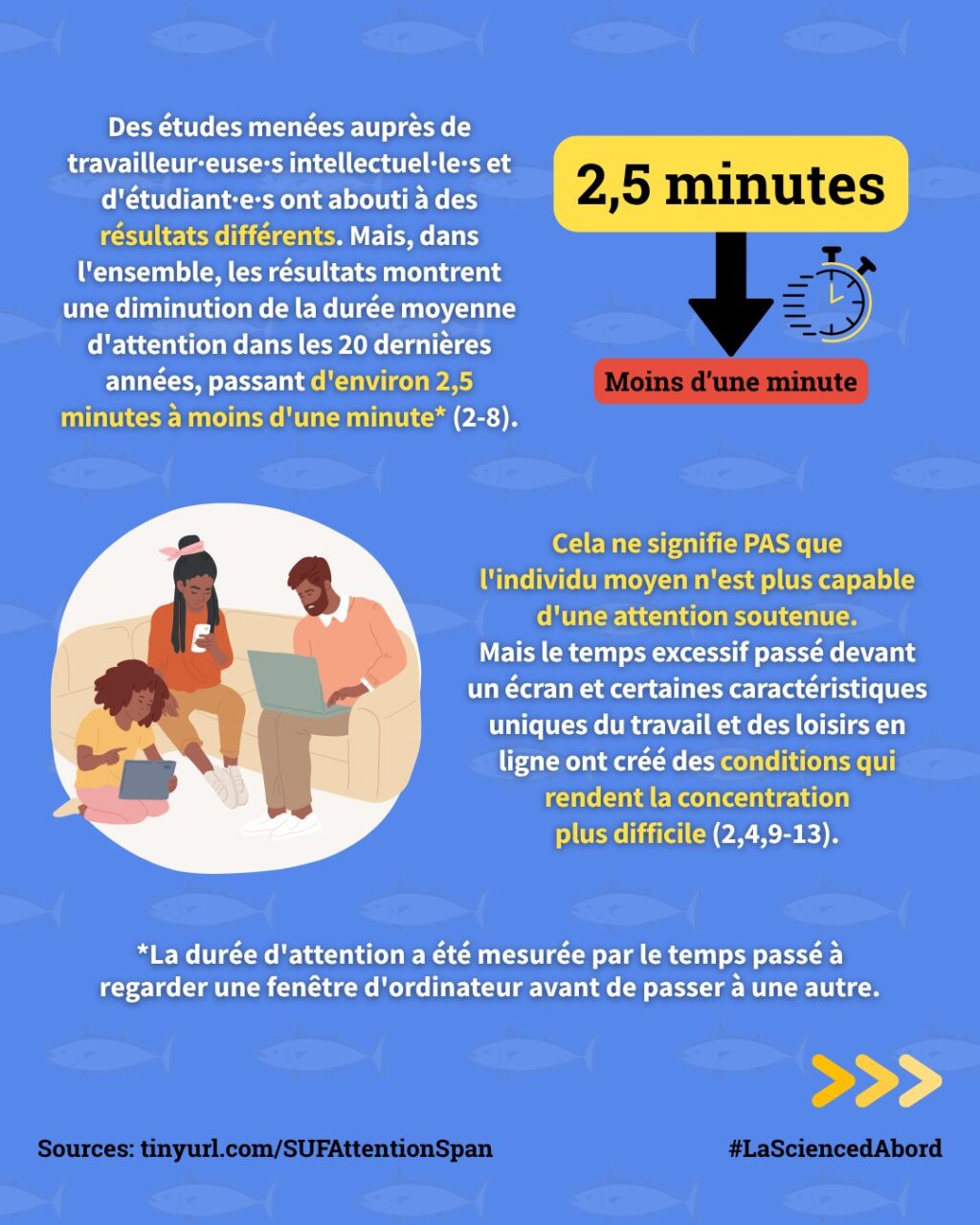
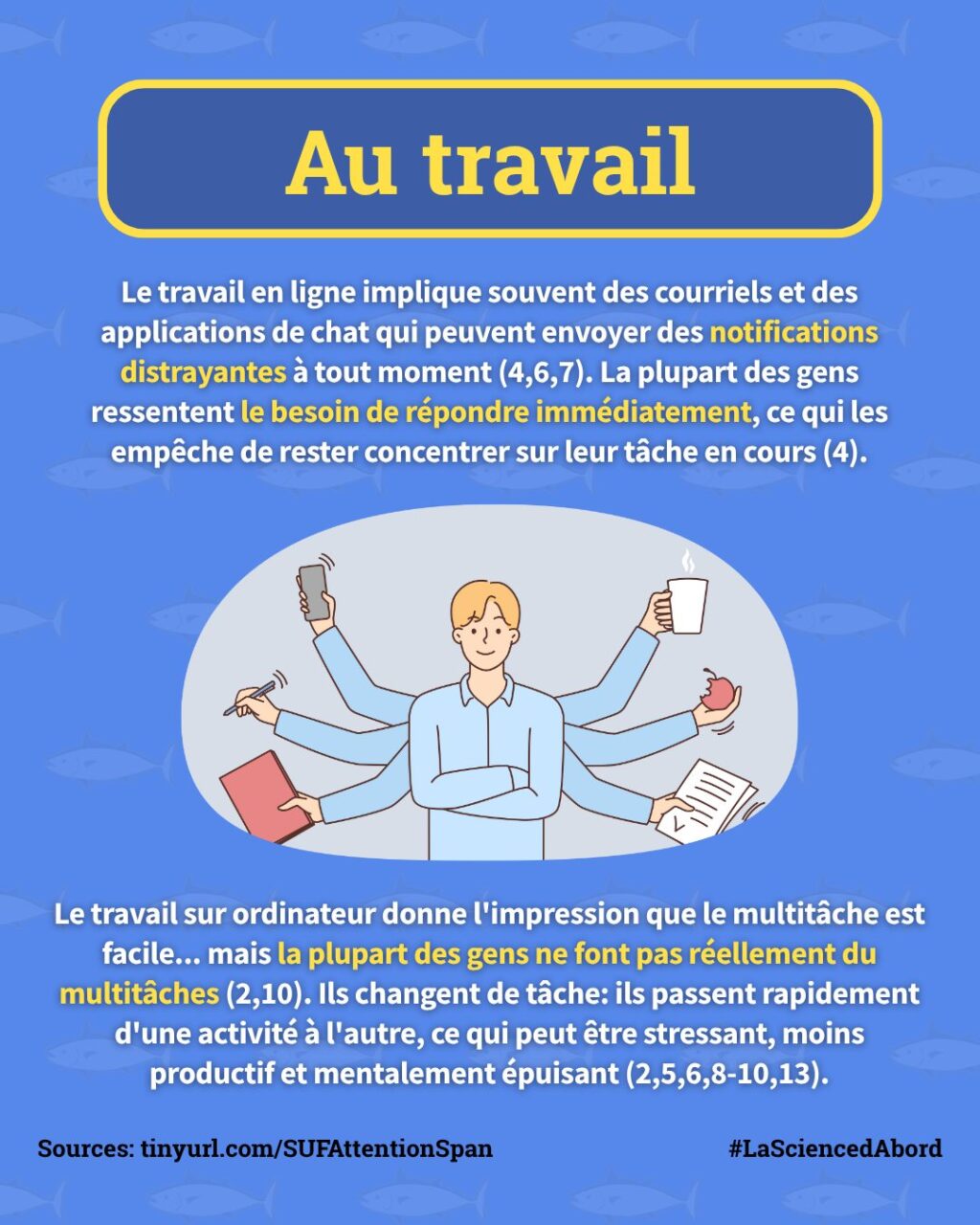
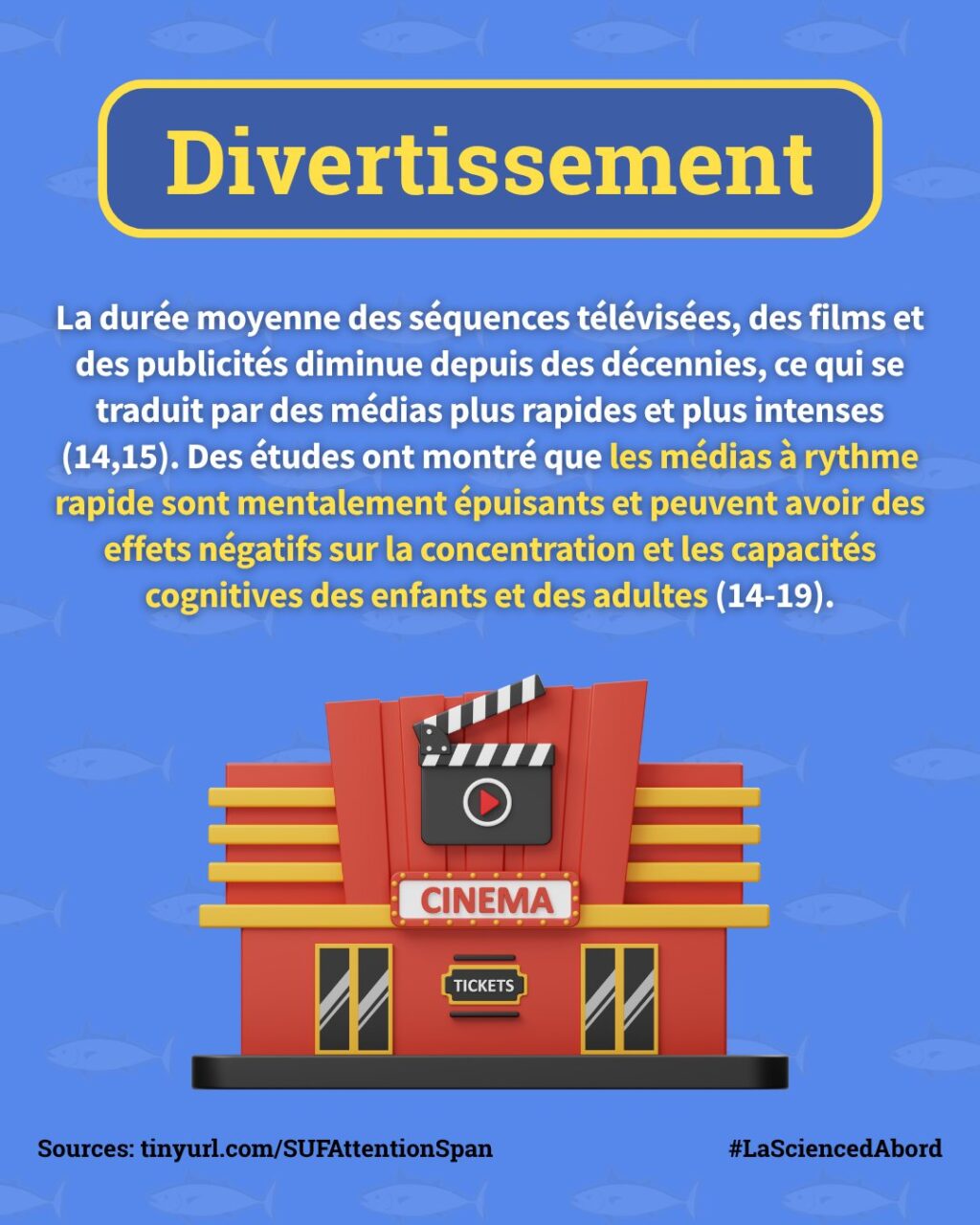
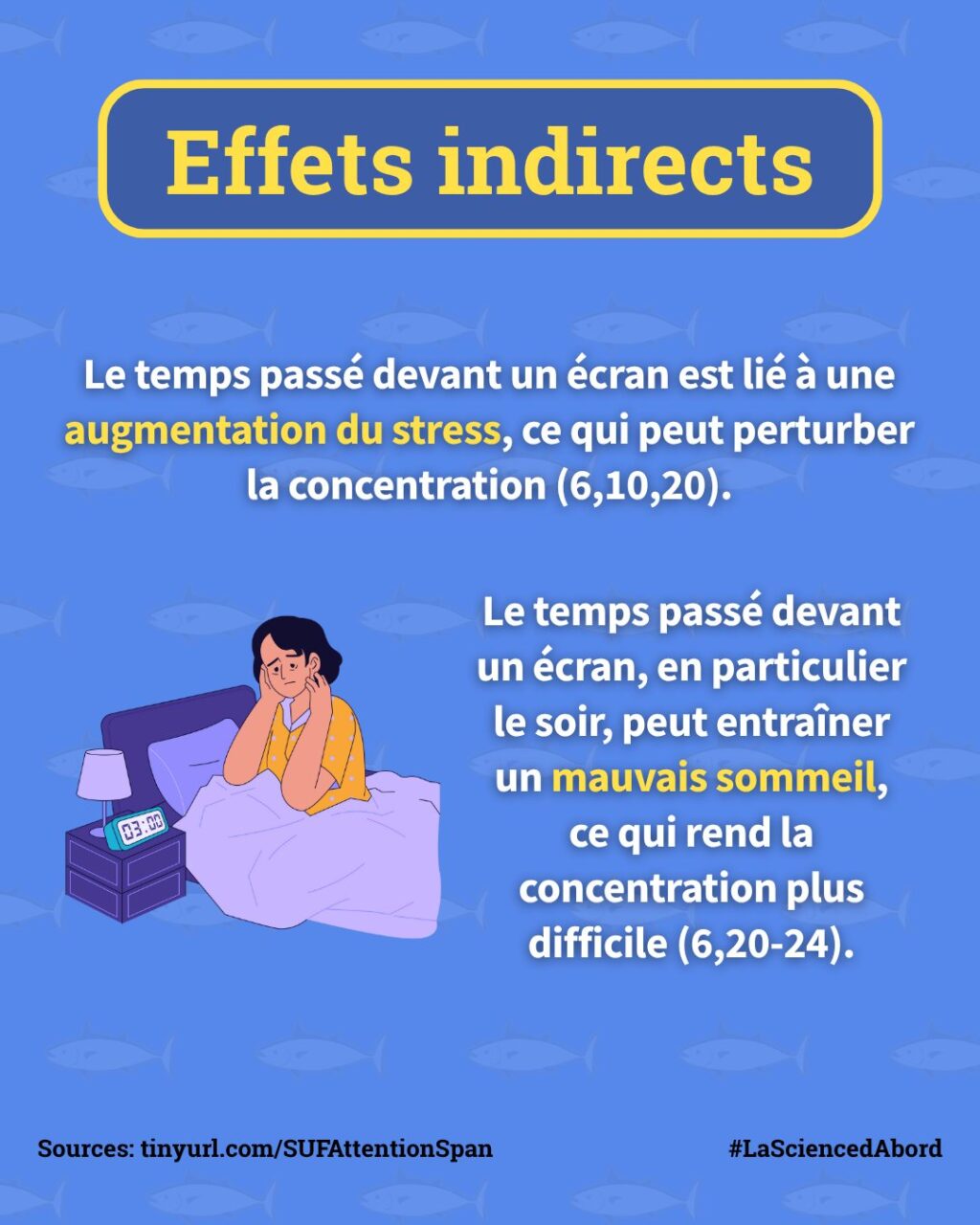
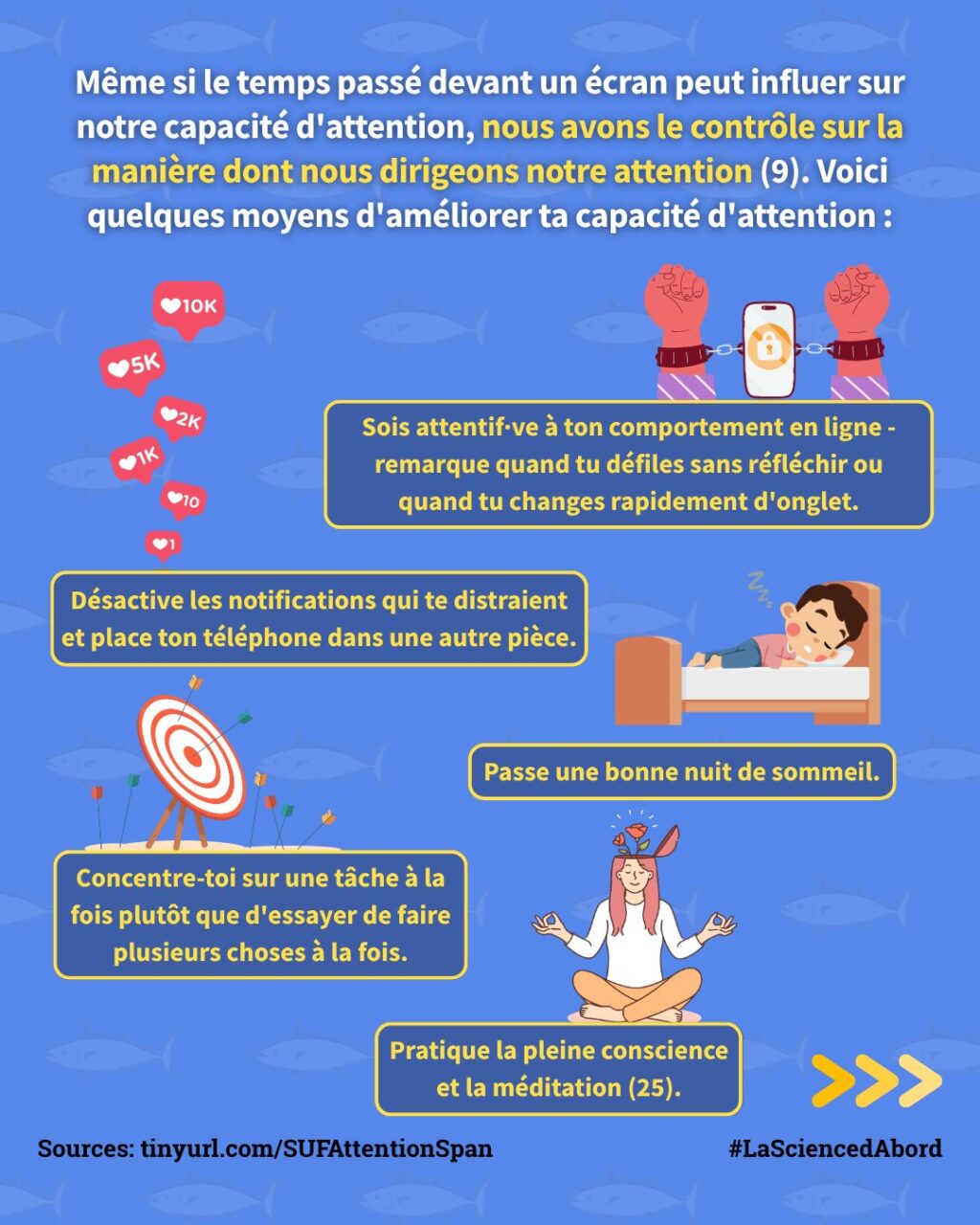
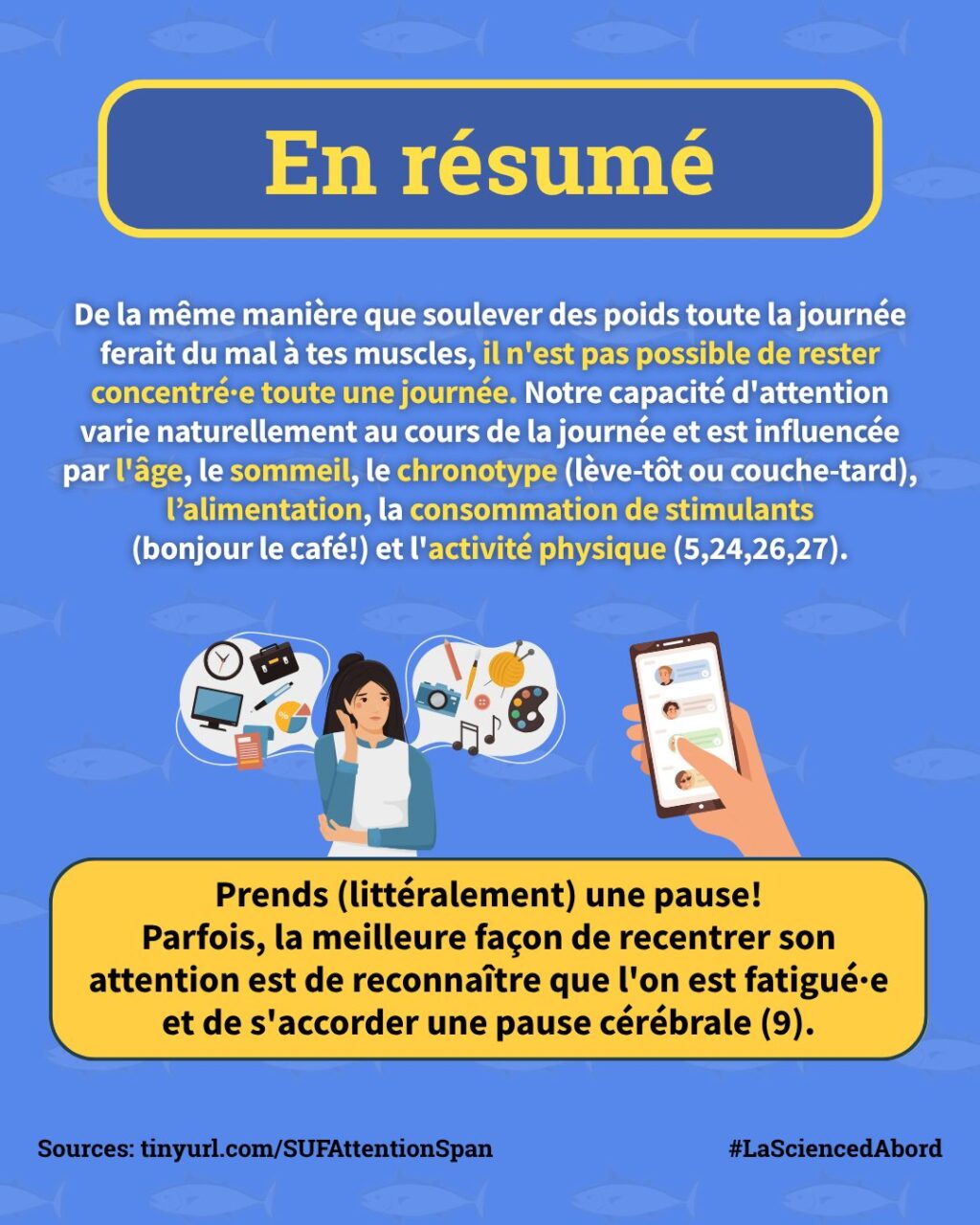
Est-ce qu’on t’a déjà dit que ta capacité d’attention était plus courte que celle d’un poisson rouge? 🐠
Bien que cette affirmation n’ait jamais été avérée, nos capacités d’attention SONT EN TRAIN de changer! 📉 Que ce soit au travail ou dans nos loisirs, les écrans et l’internet présentent des caractéristiques uniques qui peuvent nous empêcher de rester concentré·e·s.
Continue à lire pour savoir ce qui se passe réellement avec ta capacité d’attention, et comment tu peux la retrouver.
- Busting the attention span myth | BBC News | 10 March 2017
- Stress and Human-Computer Interaction at the Workplace: Unobtrusive Tracking With Wearable Sensors and Computer Logs | University of California, Irvine | 2021
- “Constant, Constant, Multi-tasking Craziness”: Managing Multiple Working Spheres | Proceedings of the 2004 Conference on Human Factors in Computing Systems | April 2004
- “A Pace Not Dictated by Electrons”: An Empirical Study of Work Without Email | Proceedings of the SIGCHI Conference on Human Factors in Computing Systems | May 2012
- Bored mondays and focused afternoons: the rhythm of attention and online activity in the workplace | Proceedings of the SIGCHI Conference on Human Factors in Computing Systems | April 2014
- Neurotics Can’t Focus: An in situ Study of Online Multitasking in the Workplace | Proceedings of the 2016 CHI Conference on Human Factors in Computing Systems | May 2016
- The Work Life of Developers: Activities, Switches and Perceived Productivity | IEEE Journals & Magazine | IEEE Transactions on Software Engineering | 23 January 2017
- Multitasking on a Single Device: Arousal and the Frequency, Anticipation, and Prediction of Switching Between Media Content on a Computer | Journal of Communication | 7 January 2014
- Are Attention Spans Actually Decreasing? | The Center for Brain, Mind and Society, Columbia University | 2024
- Adverse physiological and psychological effects of screen time on children and adolescents: Literature review and case study | Environmental Research | July 2018
- Accelerating dynamics of collective attention | Nature Communications | 15 April 2019
- No Task Left Behind? Examining the Nature of Fragmented Work | Proceedings of the SIGCHI Conference on Human Factors in Computing Systems | April 2005
- Media Multitasking Behavior: Concurrent Television and Computer Usage | Cyberpsychology, Behavior, and Social Networking | September 2011
- Camera shot length in TV commercials and their memorability and persuasiveness | Journal of Advertising Research | 1993
- Quicker, faster, darker: Changes in Hollywood film over 75 years | i-Perception | 30 September 2011
- Associations Between Content Types of Early Media Exposure and Subsequent Attentional Problems | Pediatrics | December 2007
- The effects of production pacing and arousing content on the information processing of television messages | Journal of Broadcasting & Electronic Media | 1999
- The Short-Term Effect of Video Editing Pace on Children’s Inhibition and N2 and P3 ERP Components during Visual Go/No-Go Task | Developmental Neuropsychology | July 2019
- The Immediate Impact of Different Types of Television on Young Children’s Executive Function | Pediatrics | October 2011
- Low Physical Activity and High Screen Time Can Increase the Risks of Mental Health Problems and Poor Sleep Quality among Chinese College Students | PLoS ONE | 18 March 2015
- Screen Time Among Medical and Nursing Students and Its Correlation With Sleep Quality and Attention Span: A Cross-Sectional Study | Cureus | 15 April 2024
- The Association Between Self-Reported Screen Time, Social Media Addiction, and Sleep Among Norwegian University Students | Frontiers in Public Health | 15 December 2021
- Influence of internet addiction on executive function and learning attention in Taiwanese school-aged children | Perspectives in Psychiatric Care | 31 January 2018
- Cognitive rhythms: unobtrusive and continuous sensing of alertness using a mobile phone | Proceedings of the 2016 ACM International Joint Conference on Pervasive and Ubiquitous Computing | 12 September 2016
- Mindfulness practice for focus | Harvard Health Publishing | 19 April 2024
- Circadian Rhythms in Attention | Yale Journal of Biology and Medicine | 25 March 2019
- Circadian rhythms of performance: new trends | Chronobiology International | November 2000
Partagez notre post original de Bluesky !
Est-ce qu’on t’a déjà dit que ta capacité d'attention était plus courte que celle d'un poisson rouge? 🐠 Continue à lire pour savoir ce qui se passe vraiment avec ta capacité d'attention et comment tu peux récupérer la tienne 👇 scienceupfirst.com/labc-de-scie… #LaSciencedAbord
— LaSciencedAbord (@lasciencedabord.bsky.social) May 19, 2025 at 2:39 PM
[image or embed]
Voir notre post Instagram original !

